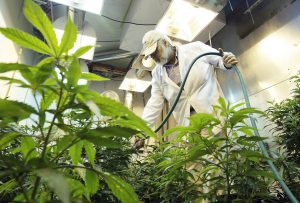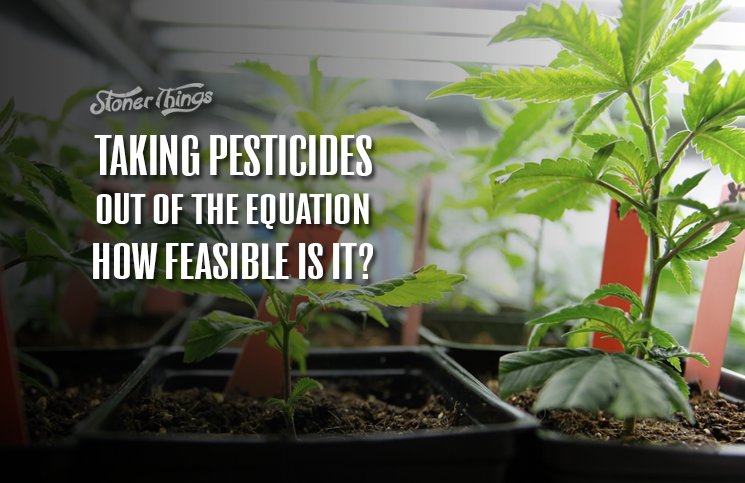Pesticides have gotten a bad rep over the decades, usually for good reason. The dangers of certain types of pesticides have been well-documented, and more than a few have even been banned entirely for the threats they pose to animals and humans, and to the environment.
Nevertheless, some pesticides have been proven to be remarkably useful in certain situations, and they have certainly helped bring about bigger harvests, better quality produce, and higher earnings.


Can we eliminate pesticide use?
But can modern-day growers actually afford to do without pesticides? Is banishing pesticides from the grow room a feasible option? It has to be said that not everyone is as concerned about having access to pesticide-free produce as others. For some, it is enough that the marijuana they purchase provides the expected effect, and the issue of pesticide use never enters the picture at all.
Of course, the market for organic products is always growing, and the cannabis market will undoubtedly experience a similar growth in the demand for organically grown products as well. A grower who has already opted out of the pesticide route might just be in an ideal position to take advantage of the inevitable market demand for pesticide-free cannabis. One thing that is certain is that marijuana growers will have to find their own ways of dealing with the pesticide issue one way or another.
What does ‘organic’ mean?
There are actually a number of growers who have ceased using pesticides entirely, or have at least made efforts to curb their use. A significant challenge faced by many growers and even consumers is that there is very little in the way of government regulation with regard to what and what does not constitute “organic” products. As it stands, most anyone can simply call their produce “organic”, whether or not it conforms to standard practices. With such a broad and varied definition of what passes for organic nowadays, many consumers simply do not know what they are actually getting.
As to whether or not pesticides have a place in the cannabis grow room, it is important to note that there is very little research on the long-term effects of pesticides on the health of people who use cannabis. The vast majority of pesticide-related research involves the study of its effects on food and industrial crops. In contrast, there is no significant body of data on how pesticide use will affect marijuana users in the long run. Considering the studies that prove the detrimental effects of pesticide use on food crops and other plants however, it would seem that leaving them out of the grow room is the better option.













